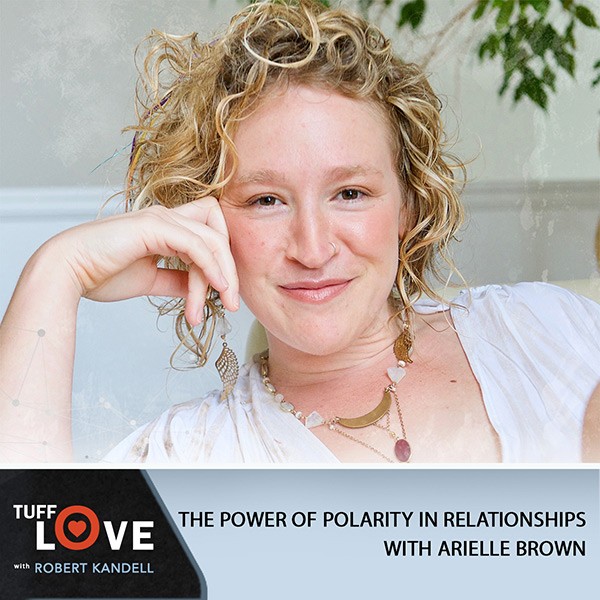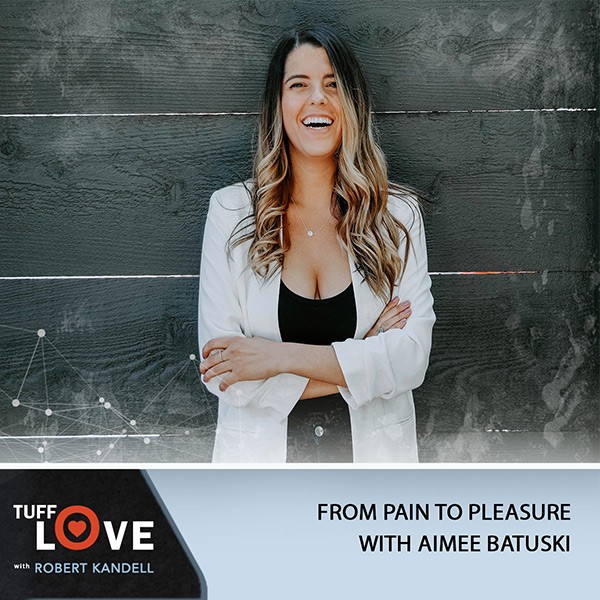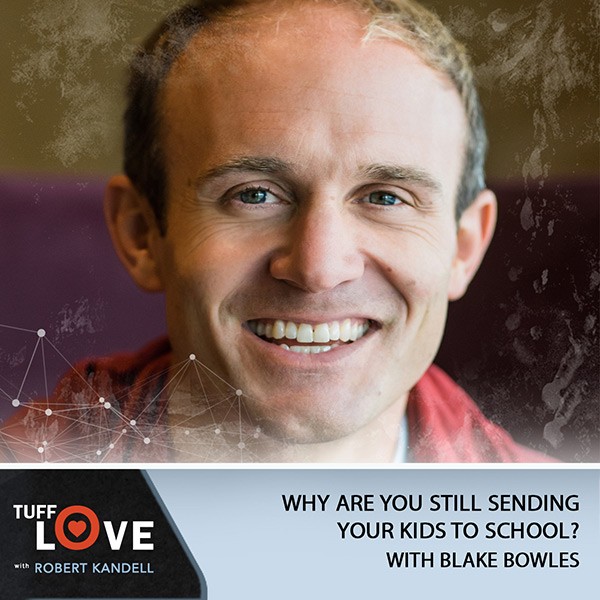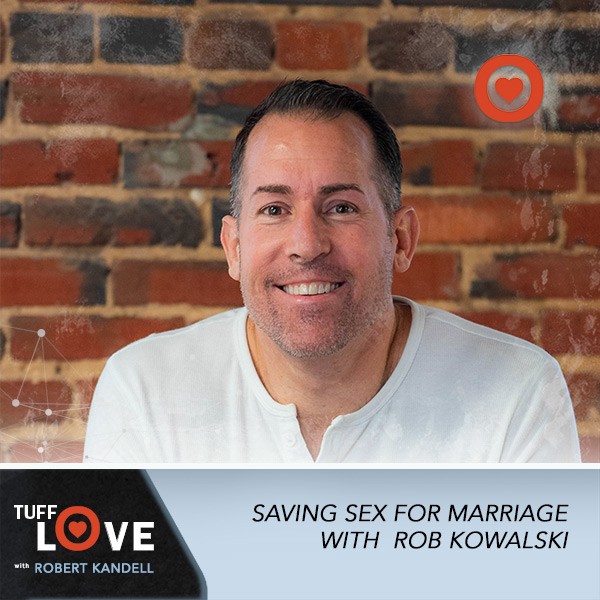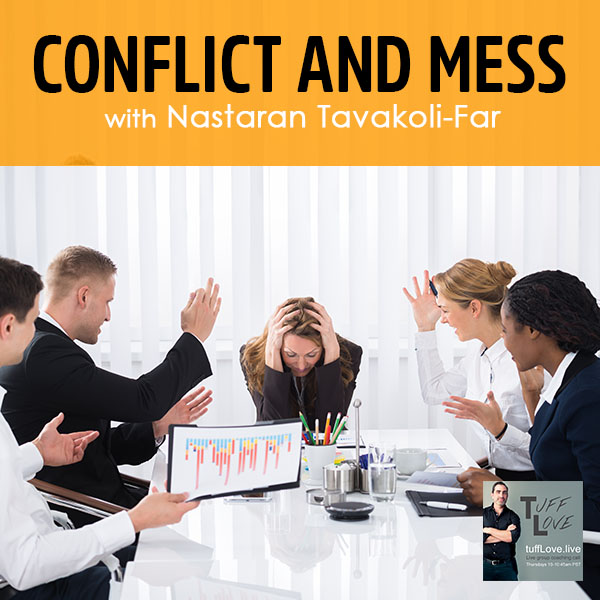
153: Conflict And Mess with Nastaran Tavakoli-Far
Sep 4, 2018
Nas is the host of the highly successful and amazing podcast, The Gender Knot. Our first meeting was when we recorded my guest appearance on the show about men and shame. There are many ways that I can describe my experience of this first meeting and the best way I can describe it is this week’s title, “Conflict and Mess.” We hit a communication gap within the first five minutes on the conversation and it got rockier and rockier from there. Then, about minute 40, we started to reconnect, and as the 90 minute interview completed, I had met a new friend. What do you do with conflict and mess? For Nas and I, we LOVE it because it allows us to practice our presence in the face of it. Come read as we wax the poetic around this concept.
153: Conflict And Mess with Nastaran Tavakoli-Far
Our guest is my good friend, Nastaran Tavakoli-Far. This is an amazing show around the process and idea about conflict and mess. In Nas’ viewpoint, the way to have the deepest intimacy is to start off with or at least not shy away from deep intimate conflict, showing of yourself being real, being honest and I agree because I live in the world of being unhidden. We have an entire show talking about dancing around the concept of being truly who you are and being authentic. I’m here with my friend, Nas. Thank you so much for being on the show. I’m super excited. I’ve been looking forward to this and I want to give our sorted history. It’s on conflict and mess. Nas wrote me an email and she wrote, “I think we make our friends through conflict or going through traumatic hard life situations together.” That means we’re going to be good friends for a long time.
I have a podcast agent, her name’s Kelly, and the talent squad. She does an amazing job of getting me on very amazing podcasts. Nas is the host along with Jonathan of a spectacular podcast called The Gender Knot. Esther Perel was number 44 and I was going to be number 47. I was like, “Yes.” I was also nervous because it’s my biggest podcast to date and I was really excited. I was on the show and we were talking about male shame and I did this great pre-interview with Jonathan. We clicked and Nas came on the show. It was 2:00 PST or 3:00 PST, which means it was 11:00 London time. In the first five minutes, Nas and I hit a roadblock. It’s not really a roadblock, it was more like a bump. It was like a big wall. I felt like the coyote chasing the road runner. I just hit that wall. It’s because I’m me, I’m speaking and I’m not explaining myself, Nas and I got into a conflict. It was 30 minutes of this podcast of conflict and mess. We did another hour after that. You stayed with it. We found resolution through that initial 30 to 40 minutes of the mess. It was one of the most beautiful experiences. I’ve been writing about it and it had a huge impact on me. That was our sordid history beginning.
It goes back further though because I wasn’t meant to be in that conversation. You and Jonathan had a bit of a chat. You could talk man to man about some things and then you were like, “We’ll do male shame.” I was like, “I’ll leave you guys.” You really wanted me to join, so I was flattered but I was like, “Yes, let’s see.” It was last minute when I joined because I was still like “Maybe it would just be them,” I joined and then within five minutes I was like, “I don’t want to be here.” It was quite a weird moment.
We stayed in it. I’ll give a little bit of your history and your bio. You’ve been a prolific producer. You worked for BBC. You’ve been doing The Gender Knot for three seasons. Does that mean three years?
It doesn’t mean anything. It’s been just over a year.
You had an amazing guest, Mark Manson, I am a fan of his, Esther Perel, my hero, Stephanie Butnick and a huge litany of great guests. The podcast is about gender. I like the one titled Gay Men Are Homophobic. I have to listen to that. I was scanning through titles, gender and clothing. You touch a lot of places about the challenges of gender and then talking about male shame was super chargy but super fun because we got into it. My main question is how did you get into this desire? I also read in your bio that you had a mix of science and art in your history. It sounds like you are a complicated, multifaceted person.
I don’t like the word complicated. When people describe themselves as complicated, usually it’s like a way of saying difficult or unpleasant.
Sometimes, we make our friends through conflict and/or going through tough times together. Click To TweetI love complicated because that’s where more conflict and mess come from. Tell us about how you get into the BBC. What was your desire? What’s your history look like?
When I went to the university, I studied economics because I wanted to do good things for the world using economics when I was eighteen but then it was very Marx-y and I was like “No, I’m not into that.” I was stepping away so I did the student paper, which was fun. Journalism is quite a conflict. When you look back on your life and everything totally makes sense, from a young age, I was always quite argumentative, quite opinionated. It’s natural to have ended up as a journalist. I feel like as journalists, often we like to think we’re doing good, but we do it in a very messy way. It’s more about uncovering questions, challenging, and picking holes in things. That’s the journalist’s contribution to doing good, breaking things apart, which is interesting because a lot of other doing good type professions are about healing, building, or making. We’re about not necessarily destroying but going into so unpleasant bits. I don’t think destruction is bad though.
Do you get the pleasure in destroying? Do you like the exposing and the destruction of the status quo? Is that what caused the fun and the connection, through conflict and mess?
It depends on the particular example. The distraction isn’t always bad but when people are sad about things ending, sometimes that’s good.

Conflict And Mess: It’s actually pretty good when people get sad about things ending.
You were an economics major. I just have an image in my head of you looking at economics and just being a contrarian, just being in there to expose the falsity of the economic theory, “Screw microeconomics. Screw macroeconomics. It’s not true.” I have a projection of you as a rabble-rouser or someone who is just against the status quo which I have to say is amazing. We get into our status quo. We get stuck in our status quo. We get imprisoned by our status quo and so I bow. I’m not teasing you at all. I am in awe of people who upset what’s been said.
There are people who upset the status quo because they don’t want change and that can be a problem. The thing when I was younger, a lot of it is, “Screw the system.” It was more because I had issues I didn’t want to face. You are like, “Everyone else is wrong, not me.” For the change the world type people, you always have to be very careful because is it like, “Are they saying that because they don’t want to change themselves?” It can be easy to romanticize that I live outside the lines because sometimes it’s like I don’t know how to get on with people.
It sounds like, “I won’t go to high school. Down with high school. I don’t want to eat my green beans. Down with green beans. Power to the people. Power to the man.”
This reminds me of when I was an undergraduate, there was one class I had that was hard. It wasn’t just me, everyone was finding it almost impossible. I went and complained to the dean of students and I wrote with this fiery French guy. It was me and him starting this whole petitioning. Then I had a friend who was studious and smart and he was like, “If you just did the work, it would have been less effort.”
Can I share a personal story that’s even more embarrassing than that? When I was in the fourth grade in Central Street, Long Island, New York, they were square dancing. There were the boys who had to touch the girls in the square dancing. I launched a petition not to square dance because I didn’t want to touch the girls. I had my own power to the people, shove it to the man experience through square dancing. Through conflict and mess, you look at it as empowerment. You look at it as a way to connect and a way to create deep friends. How does that jive? Most people look at conflict as separation and as isolation. How do you resolve the two?
Something that’s nice about conflict is that everyone gets their stuff out there. However you’re feeling, there is transparency. There’s an honesty. There’s an openness. I find that if someone is willing to go there with you, that means they’re willing to be vulnerable. They’re willing to be wrong, they’re willing to look at something that might be pretty unpleasant. That doesn’t mean looking at themselves and that might be unpleasant, but telling you something, and your reaction might be unpleasant. I’ll answer this in a roundabout way. You know things that you pathologically can’t stand. I find weakness quite repulsive and I define weakness as not wanting to look at something. For me, a brave person is someone who is willing to look at something or willing to do something uncomfortable.
There are people who upset the status quo because they don’t want change. Click To TweetI find a weakness as gross. I have a revulsion towards it. This is why I think conflict is productive because we’re going to confront something that’s unpleasant, something that’s messy. It’s actually important sometimes because there are a lot of schools of thoughts which are like, “We must communicate in a way that doesn’t hurt anyone or we must not make anyone uncomfortable.” I disagree with that because often our best lessons are from being uncomfortable and also from getting hurt and from hurting other people when it’s necessary, otherwise, you don’t feel it. It’s something I hear a lot, especially in social justice movements. It is like, “So and so was getting angry. Can you do it in a way that wasn’t angry?” I say, “Yes, but unless someone shows you that, then you don’t take the problem seriously.”
You just gave me seventeen doors to open there.
I don’t know if it’s a cultural thing because my family is Iranian. Some cultures are more comfortable with these things. Some cultures, if you have a fight with someone, it’s not a bad thing because you’re going to have lunch afterwards. I don’t know if there’s a bit of that Middle Easterness which is why I think these things. They’re not Middle Eastern, but I love Dutch people because they’re also like, “I’m going to be honest. Be honest back. Let’s get everything on the table.”
You’re talking the whole thesis of my entire work. My book is called unHIDDEN and it points to that, that we are trained to hide. We’re trained to isolate. We’re trained to take care of the other person’s fragile ego because they can’t hold all of me when you’re robbing the other person of truly who you are. How you open them up might be different between the two of us.

Conflict And Mess: We’re trained to isolate, to take care of other people’s fragile ego, because they can’t hold the entirety of us.
The exact example you gave is often quite a selfish example. It’s not that you care about how that person feels, it’s that you don’t want to have to face the consequences of that hurt or that anger or them not liking you any more or them potentially not speaking to you.
It’s the pain in the ass and the time you have to deal with their emotions. You telling someone the truth. You want to be intimate, and then you have to spend hours in text messaging, therapy and plant medicine resolving the one statement of the truth. Finally, it’s like, “I’m so glad you told me,” but that’s humanity. I learned nonviolent communication along with my travels and it was so hard for me because it was so slow.
I was reading about NBC because people talk about it. I’ve not studied it properly, but I found it a little bit offensive. There was something about it like you’re not being completely honest about situations. The reason I find it offensive, to bring an agenda dynamic, it’s like when women get emotional, they get shut down. You’re not meant to show emotion because then you’re the crazy woman. You’re being irrational, you’re being hysterical. A lot of these schools of thoughts that are all like, “Let’s not fully show ourselves.” It did a fairly bit misogynistic. That part of it bothers me.
Thank you for saying that. I never thought that particular thing where NBC and controlling language is another way to limit the feminines in keeping that controlled because the masculine can handle the death, the excitement, and the expansion of the feminine. Your feminine would ignite my masculine and have me uncomfortable. Therefore, you must stay small in order for me to feel comfortable enough to be in a relationship, which of course makes you small, which makes our relationship small, which has us all locked into those prisons.
I feel that’s a bit of a class angle I don’t like as well.
We’ve got gender and class in NBC.
I don’t know how to explain this but in Britain, we’re very sensitive to class and there’s something about the upper class also being nice and genteel. There’s a little bit of class snobbery to making a fuss means you’re not elegant and genteel. The people who make a fuss, it’s a real sense of self-worth. It’s a sense of, “I deserve to be heard. I deserve to have this thing that hurts me be acknowledged.” What’s starting the silence is violence. That’s why I find a lot of these conflict are like, “Let’s all develop a mechanism where we’re not true and honest and we try not to hurt each other or fully express ourselves.” I see that as misogynistic and as being quiet, there’s a snort class snobbery to that.
People describe themselves as complicated and it’s usually the same as saying difficult. Click To TweetWhy is silence, this violence, misogynistic?
It doesn’t have to be. Women uphold this stuff a lot as well. There’s a lot of enabling that women do. I don’t know if there is a ton of toxic femininity or not. My least favorite thing about the feminine is this culture of constantly fixing, constantly wanting everyone to be okay, constantly wanting to mend. That leads to a lot of very foolish behavior because boundaries are never late. No one’s ever called out for anything. There are never any consequences. Something that I found very exciting with this whole #MeToo thing is seeing how women are not doing that right now.
Louis C.K. is having a comeback. Just hearing women be like, “I don’t care if it was hard for him being out the limelight for a few months.” Hearing those conversations about women being like, “I don’t care about the accused,” and hearing their voice or having empathy for them, I’m finding that the most exciting thing of all this because I feel like it’s an expectation put on women to always be forgiving and always excuse other people. A lot of women use that in a very manipulative way as well, being the caretaking mother who uses that to control everyone. I like conflicts and I think things ending or destruction can be extremely beneficial. These cultures of like, “Your ex-boyfriend was abusive because he had a bad childhood.” It’s definitely my least favorite thing about the feminine.
It’s placating. In my writing, it’s like the feminine wants to placate the masculine ego. We have this patriarchal society that we live inside and it’s the status quo. I spent a lot of time working to upset the status quo between Morgan and I. I’ve done a lot of thought and research into this. I produce the money in the house, it’s my skill. I’m good at making money. It’s in my blood. I think too much and I make money. It’s just the way it is. I saw this dynamic in my parents, where my dad made the had the ultimate trump around the decisions around the money because he made the money. My mother co-created a hierarchal situation where my dad always had the final say around the money.
This value is neutral because it has worked. They’ve lived a fabulous comfortable life their entire life, so it worked for them. When I look at me and Morgan, I saw that I recreated and she recreated, we both recreated this hierarchal subtle where I always had the final say and she was bowing or seconding to my decision. Constantly, it’s a conversation like, “Did you see that in your language? Did I see that in my language? Have I did that without asking or made that assumption?” It’s exposing this hierarchal thing that stops equality because that’s my truth and desire with Morgan. It’s to screw with all our viewpoints to get to a quality but it’s so hard because of the ingrained habits that are just between us.
This is a question for her. What was it like for her trying to confront her own role in the dynamic?
We’ve talked about it. I’ll share a little bit but not to talk too much of Morgan, because she loves that. It’s challenging because there’s a comfort for her playing second. There’s a comfort of letting someone else lead or the masculine lead. This could be one of the chargiest things to talk about, the masculine and the feminine. My belief is that patriarchy was created by both the masculine and feminine. It continues to be co-created by it. It’s going to take everyone to say, “The system doesn’t work anymore. Let’s rework it for equality,” but there are benefits to be second consciously or unconsciously.
It’s easy sticking your neck out. Making a decision is hard. Click To TweetIt’s because you don’t need to stick your neck out, you don’t need to take responsibility. It’s easy sticking your neck out, making a decision is hard. If it messes up, it’s all on you and that’s not nice. Going back, it’s about the way women uphold this. I feel like in my personal life, if I look at the last five or six years, maybe with the exception of two women in my life, I find like whenever I stood up for myself, it’s generally the men who have said, “No, you don’t need to give this person a second chance. This situation, that wasn’t your fault. You don’t need to take responsibility for what happened in the situation.” I’d say there are two, three women who have also taken that line, but they’re a little bit more masculine like that. It’s something that makes me very angry amongst other women because they like their role as the fixing women or the caretaker woman. They uphold that by squishing any other woman who tries to speak out.
It’s the men in my life who have been like, “No, screw that. Put your foot down. Don’t take that nonsense.” That’s been very infuriating for me in the last few years. This sounds a little bit arrogant, but with this woman or this feminine-type of person who wants to fix, with some of them, I feel like all of you wish you could say something and you wish you could make a ruckus. You’re too scared to do that. When you see someone do that, you try and suppress them or shame them and it pisses me off.
I could see that especially for someone who likes to get in there, open the doors, open the box and let the chips fall where they may. That’s how you get burned to the stake. That’s how you get in trouble. It’s by being your full empowered itself. That’s the world we live in because we reward people for fitting inside these very well-defined lines of the status quo. Unless you win, unless you cultivate a victory, then you’re the rebels to be hunted and killed in various forms.

Conflict And Mess: In the world we live in, we reward people for fitting inside these very well-defined lines of the status quo.
It’s that thing of that whole concept of contempt is shame projected outwards or we are judging others which we are judging ourselves. That comes up a lot. This is why I’m into conflict because the kind of person who’s okay with me being full is because they will also be honest back. That’s why I’m quite a fan of having a fight early on because it’s like, “Will they let me be full?” If they will, that means because they are all also honest and trustworthy.
Do you use it to test people?
I haven’t started a fight on purpose. Sometimes I feel maybe like one should early on.
I tested Morgan at the beginning of our relationship. This is all self-protection. This has nothing to do with Morgan. This all my foolishness. I wanted to be crystal clear. I was so wounded by what I had experienced and what I had co-created that I had no trust in women. I love women. Then she came along and she’s so nice. It felt so good to be around her. I didn’t trust this was truly who she was or if she could keep up with me. I set her up in some overt obstacle courses to see how she reacted. About four months later we were sharing and I said, “By the way, I did this on purpose.” She was like, “What?” We had a pretty intense conversation. She was like, “Don’t screw with me, Kandell.” I was like, “You’re my woman.” That was why I overtly tested because I didn’t have faith and that was an important lesson to me not to do that ever again.
We test each other all the time. We play with boundaries, but this was like an overt obstacle course I had set up for her to see how she could keep up with me because I like creating games, it’s my hobby basically, like skill and job on some level. It can be a very nefarious thing. It could be a very chauvinistic thing as well to admit that they’re just not having faith. It was an important lesson for me not to do. Don’t you feel like you pick a fight just to see if they can handle the Nas storm?
I haven’t done that on purpose. That’s always where a friendship or a relationship goes if it’s going to last or not. Maybe that should happen. I have a good friend. We became friends after a fight, we knew each other. He was brutally honest with me about some stuff and I was like, “This is cool.” That was a friendship that came about after an argument.
If someone is willing to go into conflict with you, then that means they’re willing to be vulnerable, to be wrong, and to look at something. Click To TweetDo you want to be friends with someone whom you feel a draw to someone and then you feel their conflict avoidance?
I hate avoidance. It’s being weak. You don’t want to look at it. You don’t want to deal with it. I hate avoiding people. Especially if I find a guy can’t have a good clean fight with me, it’s like, “Bye.” I don’t just mean romantically by the way. Even if it’s a friend, if a man can’t have a good, clean conflict with me, if he walks away, doesn’t address it or like throws a tantrum or you just can’t have a fair fight and get in there and grapple then, “Bye.” Maybe this is a bit judgy, I have zero respect for a guy like that and maybe that sounds quite harsh. I’m more forgiving towards women I think because it’s a real self thing of being raised and not to stir the pot. There’s a big safety issue for women who cause a ruckus, but if a guy acts like that, all respect is gone.
What’s the relationship between sexual attraction and conflict? Do you find it more where there’s conflict? Does it fuel? Does it have some connection to it?
I find people who are sexy are people who are quite willing to go to the edge. Anyone who’s sexy is someone who’s willing to go there.
Do you have a cultural icon you can think of that pops in your head that you have a lot of regard for or faith in?
There are so many people. J.K. Rowling is quite a sexy person. Anthony Bourdain was super sexy. Dan Savage, Esther Perel, Chimamanda, those kinds of people. It’s not a physical attractiveness thing either, because I often think beauty and sexiness are a bit mutually exclusive. Beauty is often about perfection and about things being wonderful and ideal, whereas sexiness is about willing to go to the edge, which is why I like to think about it as rock stars tend to be sexy. I actually expect rock stars to be sexy. You should be someone who is a little bit dangerous and a little bit pushing the boundary, a little bit going there. Those people I mentioned, I think all of them are sexy because they are authentic outspoken people who will go there and who will take it as well. They’re not going to run away from something or not want to engage in something or deflect. All those people are quite different in their own way. It’s not like it’s this narrow box. It is that fearlessness. That goes hand in hand with conflict as well.
Stifling the silence is violence. Click To TweetI’ve been a fan of Dan Savage. It must be ten or fifteen years at this point. When he was writing for The Guardian and Washington, there was this little column in a time where gay men were not supposed to be vocal about anything writing about sex. I think it was called “Hey Faggot.” That was this tagline. It must have been in college or something and finding this in some reprint in the LA newspapers. I was like, “That’s amazing.” That’s provocative. That’s the concept of we can live in our little boxes and we can ensure we’re not ruffling any feathers, but then how do we truly live inside of that? How do we truly show who we are if we’re just staying in our box avoiding conflict?
We interviewed Dan Savage. He’s a super sexy person. What’s great about him is not only does he go there, but he’s happy with people calling him out. Another super sexy person is the Mooch, Anthony Scaramucci. I was listening to him on The Axe Files and I’ve listened to this interview a hundred times. What’s great about him is not only is he outspoken but he just laughs to himself the whole time and it’s great. He got fired for saying offensive things about Steve Bannon, this New Yorker reporter, in the first week.
David Axelrod was like, “You said bad things behind his back.” He was adamant like, “Do you think I haven’t said that to Steve Bannon? Are you kidding me?” He is so offended by the fact that this interview of things hasn’t sworn has Steve Bannon told him what he thinks, but then he just pokes fun at himself continuously. He was like, “You can say things about me too.” It’s that two-way thing, which Dan Savage has too of being able to be fearless and also totally owning like, “I shouldn’t have said that. I made a mistake.” Tell me what you think about me.” It’s a two-way thing.
Conflict is outspoken, being authentic, being real but also be willing to receive, to modify, to hear and to stay in connection inside of it. It’s not just walking into a place and vomiting your stuff and leaving. It really staying in.

Conflict And Mess: Conflict is outspoken, being authentic, being real but also be willing to receive, modify, hear, and stay in connection inside of it.
It’s because the first one is just being stupid. The second one is cool because it’s like, “I’m going to be honest and slap me back and I’m going to stand it.” When we had our 30-minute difficult moment on The Gender Knot, what I appreciated was, first of all, you could tell that I was uncomfortable. We both worked through it. No one said anything offensive and I could tell that this is my own stuff, so it was good. It’s like, “We’re just communicating, getting through it and engaging.” It’s that engagement. Going in vomiting and leaving is being stupid. Yes, I know you stand there and you clean up the vomit or you deal with it.
A young woman, eighteen, twenty or 25-year-old feels trapped inside for herself. She wants to learn her voice or wants to find the power to speak that part where that wants to be heard. She’s scared to death out of consequences. Maybe throughout her entire life, she’s been told that it’s wrong to be herself. Do you have any pragmatic first steps or ideas about how to take those first steps to reveal that part of herself to the world?
I would feel bad saying anything because it would very much depend on what the context is as well. Did you have more details on that?
You can give a vague answer. You grew up in a family that allowed expression but at the same time were you told to be smaller?
This sounds a bit arrogant. There’s something about intelligent kids get treated in a way that can be quite difficult by everyone. When you’re smart, you are expected not to be very emotional but be very rational, and there’s an expectation to not act like a kid, to be grown up. I was an only child and I’d say this is an expectation not just from my family but more broadly. When you are very intelligent, it is quite hard to be full, to be silly and to be playful.
Maybe this is an advice not to the young woman, maybe it’s to the parents or to the family members of the intelligent kid to allow them to be out and exposed. That’s another thing I’ve learned from Morgan is raising, co-parenting and watching her raise her daughters as she allows for free expression. It is amazing and it’s hard for me because I’m like a Law and Order, 1970s, pull out the belt guy. That’s my upbringing. To watch Morgan have space for her children to be fully who they are is so impressive and daunting at the same time.
There’s that thing of excellence. If you’re intelligent or very talented at something, excellence is a big thing and it’s something you’re proud of like being an excellent student or being an excellent athlete. While that’s all good and great, the downside of those expectations is you’re not being full. There’s a lot of pressure to not be a full messy kid. While growing up, having opinions was good.
One thing that is nice about conflict is that everyone gets their stuff out there. It is transparency, honesty and openness. Click To TweetGenerally, the social climate was like, “That’s a really smart girl.” You are above all these little kid things. I was speaking to a psychologist for a piece. She works for CEOs. It had nothing to do with gender or anything. I didn’t know how but towards the end while I was packing up my gear, I said something about being very masculine when I was younger and she was like, “This is common in very intelligent women in the West. There’s this whole thing of you proving your intelligence through being rational and linear thinking. Especially as a girl, you’re trying to show that you’re already good at that.” Most of the women she works with have that problem as well, which was quite interesting because it was like, “I thought it was just me.” Then you’re like, “No. It’s not everyone.”
Do you want to tell people about your show and how they can find you and any other projects you want to talk about?
The Gender Knot is the podcast. You can find us on most platforms. It’s about untangling between masculinity and femininity. Getting stuck into all of that. I’m not selling. We’re everywhere.
Thank you so much for being on the show. I’m grateful to know you and thank you for being raw and honest on the show.
Thanks for having me. That was fun.
We have Tuff Love every week here. We’re on Facebook Live. The Los Angeles communication course is coming up on September 22. It will be super fun. The book, unHIDDEN, will be coming out. Pre-order now for special rates and have me feel good about having many pre-orders. The Indiegogo campaign will be coming in September and the most epic book launch is happening. Stay tuned for more information.
Thank you so much for joining my show with Nas. Thank you, Nas, for just being so real, authentic and full. It was a wild journey into the reaches of your brain around intimacy, relationship, sexuality and the importance of people being authentic for staying inside the concept of conflict, so the true intimacy can be found between two people. If you like the show and feel so inclined, please check us out on iTunes, Stitcher, favorite podcast app. Give us some stars. Give us a review. For more shows and information about my work, please visit me at RobertKandell.com. Go forth, be merry, get some nookie. I love you.
Resources mentioned:
- Nastaran Tavakoli-Far
- The Gender Knot
- Esther Perel on The Gender Knot
- number 47 episode on The Gender Knot with Rob Kandell
- Mark Manson on The Gender Knot
- Stephanie Butnick on The Gender Knot
- Gay Men Are Homophobic on The Gender Knot
- unHIDDEN
- Tuff Love on Facebook Live
- Tuff Love on iTunes
- Tuff Love on Stitcher
About Nastaran Tavakoli-Far
 I’m Nas aka Nastaran Tavakoli-Far. I’m a journalist and I’m fascinated with the psyche and with serious soul diving!
I’m Nas aka Nastaran Tavakoli-Far. I’m a journalist and I’m fascinated with the psyche and with serious soul diving!
I studied economics so am aware that it’s all about the micro and the macro, and how they interplay, and how you need to understand and honor both to go forth in the world. Therefore I’m also fascinated by polarities and the fine balance needed of both, with masculinity and femininity being one set of examples. I’ve also reported on STEAM – that’s about adding the arts to STEM education – and like to boast about my nerdy (and perhaps rather classical) teenage years where I was very skilled at both fine ink drawings and differential equations!
I also currently present/host and report for the BBC World Service radio, where I worked for many years on news programmes, and I’ve also reported for BBC Business and BBC Technology. I was educated at the LSE and Columbia Journalism School.
Podcast: Play in new window | Download




